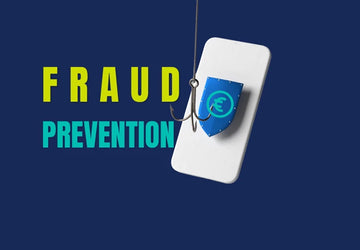
In today's digital age, online shopping has become a convenient way to purchase goods and services. However, with the rise in popularity of ecommerce websites, there has also been an increase in online scams and fraudulent activities. As responsible consumers, it's crucial to educate ourselves on how to spot and avoid these scams to protect our hard-earned money and personal information.
Understanding the Threats:
Online scams come in various forms, including fake ecommerce websites, phishing emails, and fraudulent advertisements. These scams often lure unsuspecting consumers with attractive offers, discounts, or promises of easy money. Once they have your personal information or payment details, scammers can steal your identity, money, or both.
Spotting the Red Flags:
To avoid falling victim to online scams, it's essential to be vigilant and watch out for red flags. Here are some common warning signs to look out for:
- Unsolicited Emails: Be cautious of unsolicited emails or messages asking for personal information or payment details.
- Too Good to Be True Deals: If an offer seems too good to be true, it probably is. Be wary of websites offering unrealistic discounts or prices that are significantly lower than market rates.
- Poor Website Design: Legitimate ecommerce websites typically have professional-looking designs and secure checkout processes. Be wary of websites with poor grammar, spelling errors, or unsecured payment gateways.
- Lack of Contact Information: Legitimate businesses provide contact information such as a physical address, phone number, and email address. If a website lacks this information or provides vague contact details, it may be a scam.
- Pressure Tactics: Scammers often use pressure tactics to rush you into making a purchase or providing sensitive information. Be cautious of websites or emails that create a sense of urgency or fear.
Protecting Yourself:
To protect yourself from online scams, follow these essential tips:
- Do Your Research: Before making a purchase from a new ecommerce website, research the company's reputation and read reviews from other customers.
- Verify Website Security: Look for HTTPS and a padlock icon in the address bar, indicating that the website is secure. Avoid entering sensitive information on unsecured websites.
- Use Trusted Payment Methods: Whenever possible, use secure payment methods such as credit cards or payment gateways like PayPal, which offer buyer protection against fraud.
- Keep Software Updated: Regularly update your devices and software to protect against security vulnerabilities that scammers may exploit.
- Stay Informed: Stay updated on the latest online scams and security threats by following trusted sources such as consumer protection agencies and cybersecurity websites.
Conclusion:
By staying informed and vigilant, we can protect ourselves from falling victim to online scams and fraudulent ecommerce websites. Remember, if something seems too good to be true, it probably is. Take the time to research and verify the legitimacy of ecommerce websites before making a purchase, and always prioritize your safety and security online. Together, we can create a safer and more trustworthy digital marketplace for all consumers.










